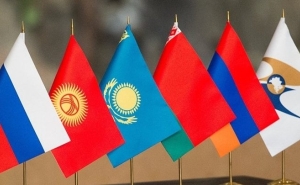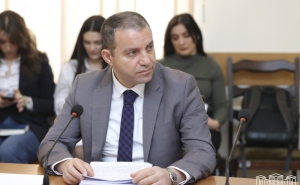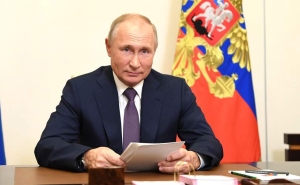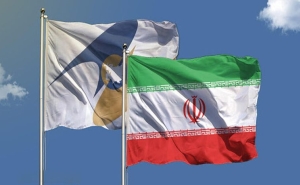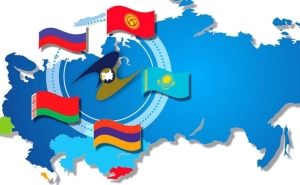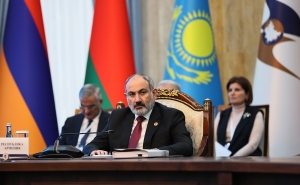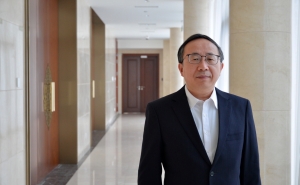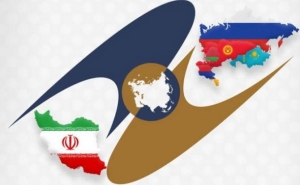Armenia Stays Loyal to Its Two-Vector Integration Policy
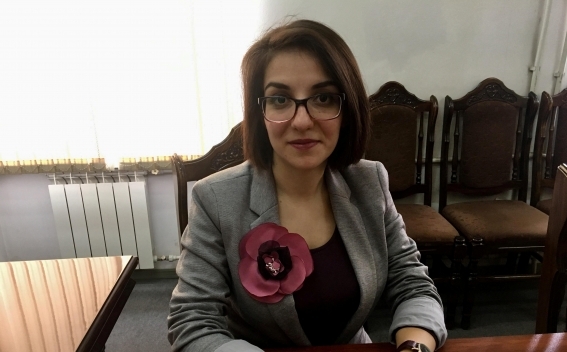
After the Velvet Revolution in Armenia, one of the most important issues worrying the international community, Armenian citizens and expert circles was the possible changes in Armenia's foreign policy. Moreover, the issue of integration policy vectors was urgent. Recent trends in post-Soviet countries have shown a sharp deviation from geopolitical vectors to the West. But the revolution in Armenia was quite unique in that sense. It did not have any foreign policy agenda, geopolitical context and was not aimed at distracting Armenia from one side or another. And that tendency also continued after the end of the revolution and after Nikol Pashinyan's assuming the post of Prime Minister.
Reactions to Nikol Pashinyan's election as prime minister also testified the consistent work that had been carried out with both Russia and the West. On the same day, on May 8, Russian President Vladimir Putin was the first to congratulate Pashinyan, and shortly after, congratulatory messages came from the EU foreign policy chief, Federica Mogherini, as well as from the representatives of the US Department of State.
All the superpowers expressed hope that Armenia will continue to develop and deepen cooperation with them. Besides, Pashinyan had a number of meetings with different ambassadors and on May 14 the Prime Minister visited Sochi and had a private talk with Vladimir Putin.
After being elected as Prime Minister of the Republic of Armenia, Pashinyan has spoken many times about the active participation of the RA in the framework of the new EU agreement with the EU and the bilateral cooperation with the EU member states, and at the same time the active participation of the Republic of Armenia under the CSTO and its strategic allied relations with Russia.
The internal political developments in Armenia also have additional potential for creating new opportunities for Armenia in these two directions and raising the efficiency of Armenia's participation in the existing formats. But there is a need of certain time and strategy to accomplish that.
As for the need to balance the vectors of European integration and the Eurasian integration, it is not just a matter of taste and preferences, but a necessity that directly affects the country's development and security, dictated by geopolitical realities. Former Armenian authorities have succeeded in making complicated and consistent efforts in this context, and the task of the new authorities is not to break the existing balances but rather to develop the relations in both directions.
Other materials on this subject
- EU Fully Supports Normalization Process of Armenia-Turkey Relations - Toivo Klaar "Normalization of relations and opening of communications is an important objective that the European Union fully supports", he said on Twitte
- The EU Wants To Be Engaged In South Caucasus The EU wants to be a very committed, active, and engaged partner for Armenia's stability, prosperity, and security. In this context, we had the opportunity to talk about Armenia-EU relations
- The 6th Meeting of the Armenia-EU Joint Visa Facilitation Committee Took Place The importance of the continuous mutual efforts aimed at promoting the mobility of citizens, fighting illegal migration and opening in due course the Visa Liberalization Dialogue has been underlined.
- Export From Armenia To The EU In 2019 Was 196.6 Million EUR Armenia has the highest percentage of the use of the preference among all the EU GSP+ beneficiaries in 2019, EU delegation in Armenia informs.
- Austria Completes Internal Procedures Necessary for Ratification of Armenia-EU CEPA Austria notified on July 22 the General Secretariat of the European Council and the Council of the EU about the completion of its internal procedures necessary for the ratification of the Armenia-EU Comprehensive...
Other materials on this subject
- EAEU to become one of key centers of Greater Eurasian Partnership, says Putin "Our integration may play the role of one of the key centers of the Greater Eurasian Partnership formation," the president added.
- Russia ratifies protocol on requirements for length of service of EEU bodies' employees for pensions The corresponding law was signed by Russian President Vladimir Putin. The document was published on the official Internet portal of legal information.
- We have reached significant achievements in the development process of the EAEU- Nikol Pashinyan A large single market has been created, the mutual trade figures have increased considerably.
- Russia ratifies agreement on simplification of payments for goods’ transit within EAEU territory The aforesaid agreement will be applied in the event that the goods are subject to the procedure of customs transit in one EEU member country, whereas customs and other payments in another.
- EAEU Countries Discuss Creating Eurasian Agency for Strategic Initiatives The issue has been discussed by the economy ministers of the Union’s member states and has been presented to the Eurasian Economic Commission in the platforms of the Eurasian Inter-governmental Council.
-
 17:08
17:08The regular session of the Anti-corruption Policy Council takes place in Jermuk
-
 15:05
15:05The Prime Minister sends congratulatory messages to the supreme leader of Iran and the President of Iran
-
 11:11
11:11Armenia sends earthquake aid to Turkey
-
 10:43
10:43Commemoration of the Pontiff St. Sahak Partev
-
 09:16
09:16Some roads are closed and difficult to pass in Armenia
-
 19:55
19:55Phone conversation of the Foreign Minister of Armenia with the U.S. Assistant Secretary of State for European and Eurasian Affairs
-
 18:30
18:30Prime Minister Pashinyan and President Khachaturyan meet
-
 18:20
18:20Ararat Mirzoyan with Co-Chairman of the OSCE Minsk Group of France Brice Roquefeuil
-
 17:01
17:01Humans could land on Mars within 10 years, Musk predicts
-
 16:45
16:45France, US urge 'immediate' end to Nagorno Karabakh blockade
-
 16:01
16:01Blockaded Nagorno Karabakh launches fundraiser to support quake-hit Syria
-
 15:59
15:59Earthquake death toll in Turkey rises to 18,342
-
 15:43
15:43Ararat Mirzoyan Held a Telephone Conversation with Sergey Lavrov
-
 15:06
15:06French president rules out fighter jet supplies to Ukraine in near future
-
 14:47
14:475 Day Weather Forecast in Armenia
-
 14:44
14:44President Vahagn Khachaturyan wrote a note in the book of condolences opened in the Embassy of Syria in Armenia
-
 14:20
14:20Azerbaijan’s provocations impede establishment of peace and stability – Armenian FM tells Russian Co-Chair of OSCE MG
-
 12:57
12:57France representation to OSCE: Paris calls on Azerbaijan to restore freedom of movement through Lachin corridor
-
 11:40
11:40Command of Kosovo forces highly appreciated preparation of Armenian peacekeepers
-
 10:16
10:16The United States withdrew from sanctions against Syria for six months the provision of assistance after the earthquake
day
week
month
Humidity: %
Wind: km/h


